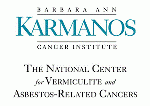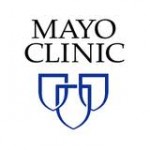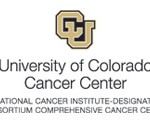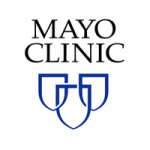
William Pao, M.D., Ph.D.
Vanderbilt-Ingram Cancer Center
Dr. Pao is a physician-scientist with a special interest in thoracic oncology. Dr. Pao’s research focuses on identification of genes involved in the pathogenesis of lung tumors and stratifying tumors intoclinically relevant molecular subsets. Using information derived fromthese experiments, Dr.
Education
Ph.D. – Yale University, 1998
M.D. – Yale University, 1990
Fellowship – Memorial Sloan-Kettering Cancer Center, 2005
Fellowship – Memorial Sloan-Kettering Cancer Center, 2004
Internship – New York Presbyterian Hospital, 2000
Residency – New York Presbyterian Hospital, 2000
Research Specialty
The Pao Laboratory aims to perform translational research in the area of solid tumor biology, using lung cancer as a paradigm. The overall goal is to develop molecularly-tailored treatments for patients with lung cancer.
Research Description
Lung cancer is the leading cause of cancer-related death in the U.S and worldwide. Most cases arise in former or current smokers, but about 10% of cases also occur in individuals who smoked less than 100 cigarettes in a lifetime (“never smokers”). Lung cancers are currently classified by histopathological techniques as either small-cell lung cancer (SCLC) or non-small cell lung cancer (NSCLC). In North America, adenocarcinoma (a type of NSCLC) is the most frequent type of histological tumor, accounting for 40% of all cases of lung cancer.
New “targeted” epidermal growth factor receptor (EGFR) tyrosine kinase inhibitors (TKIs) like gefitinib (Iressa) and erlotinib (Tarceva) have given us a window of opportunity to elucidate clinically relevant molecular subsets of lung adenocarcinomas. For example, clinical trials have shown that gefitinib has an overall response rate of 10% in American and European populations, and 28% in Japanese patients. Retrospective analyses suggested that gefitinib is most efficacious in “never smokers” with adenocarcinoma histology. Such findings can now be largely accounted for by research from our group and others showing the relatively high incidence of mutations in the gene encoding EGFR in these respective populations and the association of EGFR mutations with increased sensitivity to both gefitinib and erlotinib.
While EGFR mutations are common in tumors from never smokers, mutations in KRAS, which encodes a signaling molecule downstream of EGFR, more commonly occur in individuals with substantial cigarette use. Moreover, EGFR and KRAS mutations appear to be mutually exclusive, suggesting that EGFR and KRAS mutations within lung epithelia are equivalent in their tumorigenic effects. We found that mutations in KRAS are associated with primary resistance to these drugs. This suggests that pre-treatment mutational profiling of both EGFR and KRAS may help guide treatment decisions regarding the use of these agents.
Unfortunately, virtually all patients who initially respond to gefitinib and erlotinib eventually develop acquired resistance. We have shown that tumor cells from patients whose disease progresses after initial responses on therapy with these agents frequently harbor second-site mutations in EGFR. The predominant second mutation substitutes methionine for threonine at position 790 in EGFR, which is predicted to block binding of gefitinib and erlotinib to the ATP-binding pocket of the kinase. Interestingly, the T790M amino acid change is analogous to changes seen in other kinases targeted by a related kinase inhibitor, imatinib (Gleevec), in patients that develop acquired resistance to that drug. Using a genomic approach, we have also recently found that tumor samples from patients with acquired resistance to gefitinib or erlotinib harbor amplification of MET, which encodes another tyrosine kinase. MET amplification appears to occur independently of T790M mutations. Importantly, MET inhibitors are currently being developed in the clinic.
The Pao Laboratory is now focused on the following:
1) Defining further molecular subsets of lung cancers, based primarily upon mutational profiling of the oncogenome in tumor samples.
2) Elucidating other mechanisms of sensitivity and resistance to EGFR inhibitors in lung cancer. For example, we recently showed that in drug-sensitive EGFR mutant lung cancer cells, induction of BIM is essential for apoptosis triggered by.







